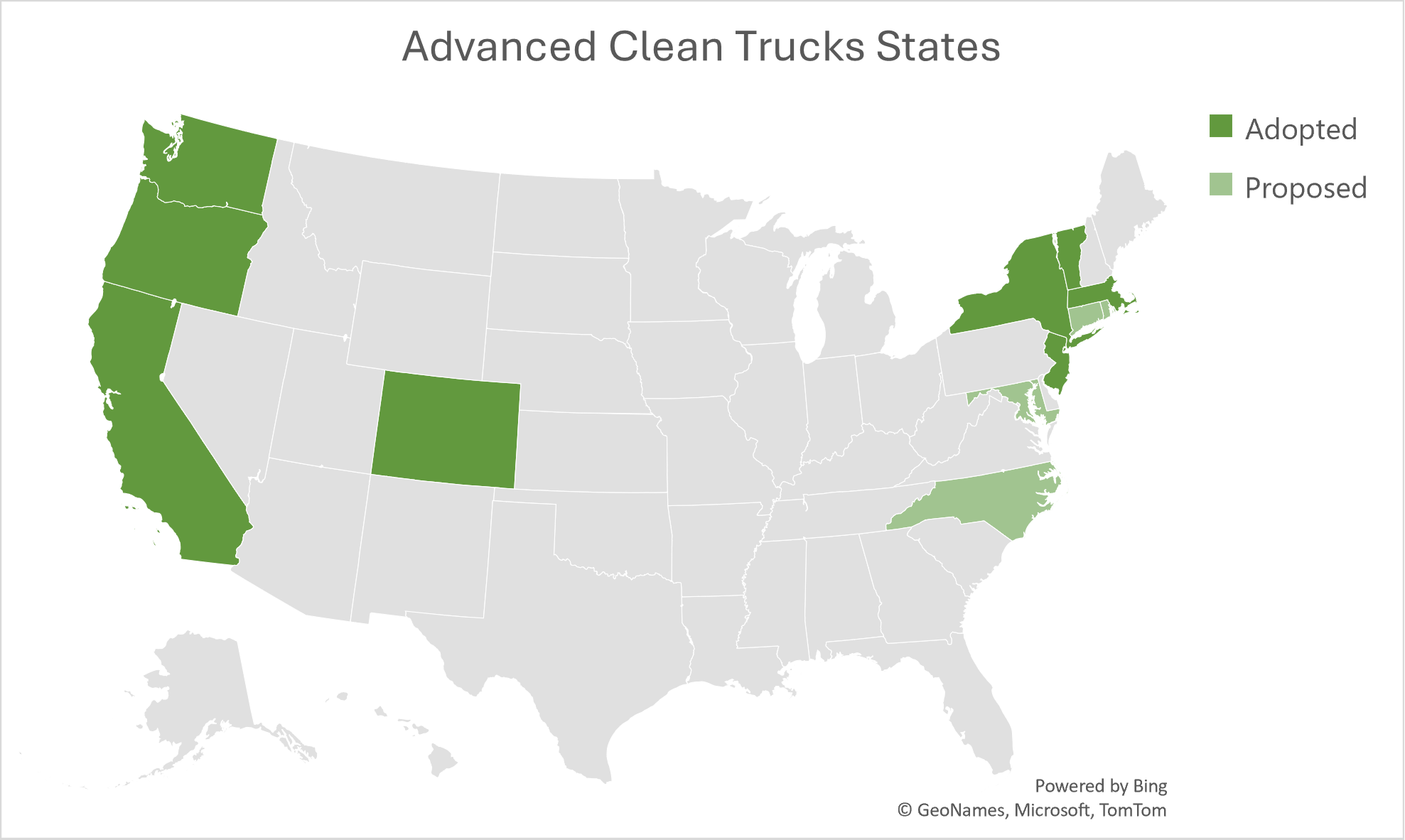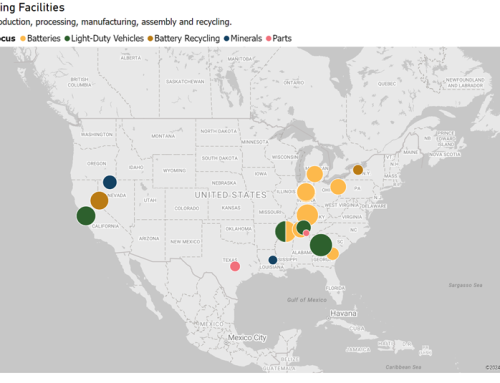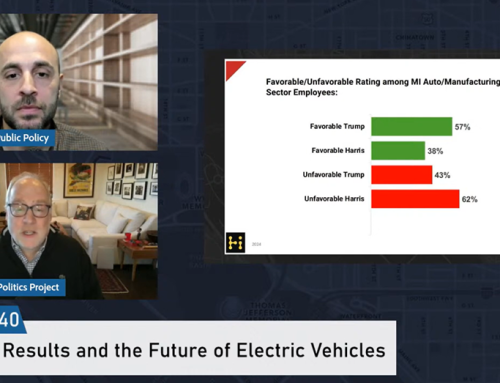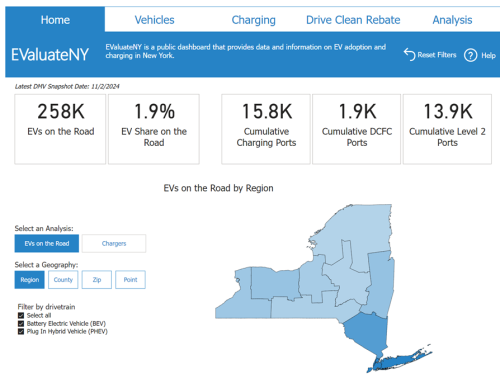
Source: EV Hub
Last week, Rhode Island’s Governor Dan McKee announced the state will be moving forward with phasing out the sale of new gas-powered light-duty cars and trucks by 2035 – a pivotal move to eliminate tailpipe emissions and commit to cleaner transportation on the roads. Rhode Island joins the growing number of states adopting the Advanced Clean Trucks (ACT) and Advanced Clean Cars II (ACCII) regulations.
Rhode Island’s Department of Environmental Management intends to hold a virtual public listening session on the new rules referred to as “Rhode Island’s Low-Emission and Zero-Emission Vehicle on the Programs,” on May 18th. Additionally, the Department is soliciting public comments on the proposed rules through May 24th.
Rhode Island is not the only state that has announced plans to adopt ACT this year. Maryland’s Senate Bill 0224, or the Clean Trucks Act of 2023, directs the Maryland Department of Environment to adopt the ACT rule by the end of this year.
However, as laid out in the text of the legislation, the Department must “prepare a needs assessment and deployment plan relating to the successful implementation of regulations adopted.” The needs assessment and deployment plan must consider 1) “the additional electrical capacity, transmission, distribution demands, and hydrogen fueling demands that will result from ACT implementation, 2) “the number of charging stations recommended for zero-emission medium-and heavy-duty trucks,” 3) “purchase incentives, including incentives for charging stations,” and 4) “the timeline, economic feasibility, and model availability to transition state fleet vehicles.” The Department must present these findings to the General Assembly by December 1st, 2024.
Furthermore, Colorado’s Air Quality Commission unanimously adopted ACT after a multi-day hearing just last month. The Commission adjusted the Air Pollution Control Division’s proposal for the Large Entity Reporting rule – which sets reporting requirements for operators with a fleet of 20 or more trucks – by establishing two reporting deadlines instead of one. The division will also make the data publicly available.
In addition to adopting ACT, the Colorado Air Quality Commission also adopted the Low NOx Truck rule, which sets stringent air pollution standards for heavy-duty vehicles for trucks beginning with MY 2027. According to the Colorado Department of Public Health and Environment, the rule will “lower the nitrogen oxide emissions standard for new vehicles by 90 percent compared to the current standard.”
For states that adopt ACT in 2023, the regulation takes effect for trucks beginning with MY 2027, with increasing sales percentages through 2035. Additionally, the sales requirements only apply to medium-and heavy-duty manufacturers, not independent dealers or consumers. For a primer on ACT, this previous digest tells you all that you need to know.
As of May 2023, eight states have adopted ACT, including California, Oregon, Washington, Colorado, New Jersey, New York, Vermont, and Massachusetts. Several other states, including North Carolina and Connecticut, have proposed the regulation. Stay up to date on ACT and ACC II by visiting our State Policy Dashboard.


